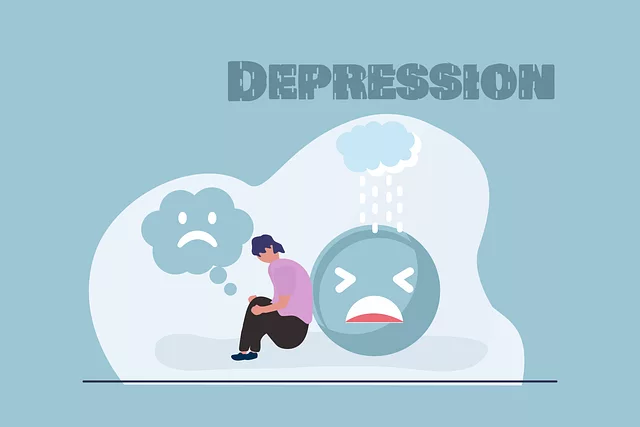Mastering Resilience: Kaiser Permanente Mental Health Center’s Guide to Coping Skills
Coping skills, crucial for navigating life's challenges and maintaining emotional well-being, i…….
In the realm of healthcare, particularly within the mental health sector, the approach and quality of treatment vary widely across regions. One such notable entity is the Kaiser Permanente mental health center in Lafayette, a facility that has garnered significant attention for its innovative practices and patient-centric care. This article aims to delve deep into the various facets of the Kaiser Permanente mental health center reviews Lafayette, exploring its definition, global impact, economic implications, technological contributions, regulatory landscape, challenges, success stories, and future prospects. By examining these aspects, we can gain valuable insights into how such centers shape mental healthcare delivery worldwide.
Definition:
Kaiser Permanente (KP), a not-for-profit healthcare provider, operates numerous mental health centers globally, with the Lafayette location being one of its flagship facilities in the United States. These centers offer a comprehensive range of services, including therapy, counseling, psychiatric care, and support groups, catering to diverse patient needs. The ‘reviews’ aspect refers to the feedback and assessments provided by patients, healthcare professionals, and experts who have interacted with these centers, offering insights into their performance, strengths, and areas for improvement.
Core Components:
Historical Context:
The Kaiser Permanente organization was founded in 1945 by Henry J. Kaiser and John H. Durie, with a vision to provide high-quality healthcare at affordable rates. The inclusion of mental health services has been an evolving process, with the Lafayette center being established in response to growing awareness and need for accessible mental healthcare. Over time, KP has expanded its mental health offerings, becoming a leading provider in this sector.
The influence of Kaiser Permanente mental health centers, including the Lafayette location, extends far beyond their geographical boundaries. Here’s a global outlook:
The economic aspects of Kaiser Permanente mental health centers are multifaceted:
Kaiser Permanente has embraced technology to enhance mental healthcare delivery:
The regulatory environment plays a critical role in shaping Kaiser Permanente mental health centers’ operations:
Despite its many achievements, Kaiser Permanente mental health centers face several challenges:
Proposed Solutions:
The Kaiser Permanente Lafayette center successfully launched a community outreach initiative targeting at-risk youth in partnership with local schools. This program offers after-school counseling sessions, stress management workshops, and mental wellness seminars. The results have been promising, with improved school attendance, reduced suspension rates, and increased student well-being. This case highlights the impact of KP’s community-focused approach on young people’s mental health.
In a remote rural region, the KP mental health center implemented an expanded telehealth program to bridge the gap in access to specialized care. This initiative provided individuals living in isolated communities with access to psychiatrists, psychologists, and therapists via video conferencing. The success of this program led to increased patient satisfaction and improved treatment outcomes, demonstrating the value of remote healthcare delivery.
Looking ahead, Kaiser Permanente mental health centers have several growth areas and emerging trends:
Kaiser Permanente mental health center reviews Lafayette represent a comprehensive approach to delivering quality, accessible, and innovative mental healthcare. The center’s impact extends far beyond its geographical boundaries, influencing global trends and practices. By addressing challenges, leveraging technology, and staying true to its patient-centric philosophy, KP continues to shape the future of mental healthcare. As the field evolves, these centers will play a pivotal role in ensuring that individuals worldwide have access to effective, compassionate, and culturally sensitive mental health services.
Q: How does Kaiser Permanente ensure cultural sensitivity in its mental health services?
A: KP recognizes the importance of cultural sensitivity and provides comprehensive training to staff. They adapt their practices to respect diverse cultural beliefs and traditions, ensuring inclusive care.
Q: Are Kaiser Permanente mental health centers accessible to everyone, regardless of insurance?
A: While KP aims for accessibility, individual center policies may vary. Some centers offer sliding fee scales or community health programs for those without insurance. It’s best to check with the specific location for their affordability options.
Q: In what ways does technology improve mental healthcare at Kaiser Permanente centers?
A: Technology enhances care through telehealth services, digital therapy platforms, efficient data management, and personalized treatment modules, making services more accessible and engaging.
Q: How does Kaiser Permanente measure the success of its mental health programs?
A: They employ various methods, including patient satisfaction surveys, outcome assessments, and data analytics, to evaluate program effectiveness and make informed improvements.
Q: Can individuals refer themselves to a Kaiser Permanente mental health center?
A: Yes, most KP centers accept self-referrals. Individuals can reach out directly or seek referrals from primary care providers for evaluation and treatment.

“In today’s fast-paced world, mental health crisis hotline support services serve as a vital safety…….

The Kaiser Permanente Mental Health Center in Lafayette receives rave reviews for its comprehensive…….

The Kaiser Permanente Mental Health Center in Lafayette offers a culturally sensitive, holistic appr…….